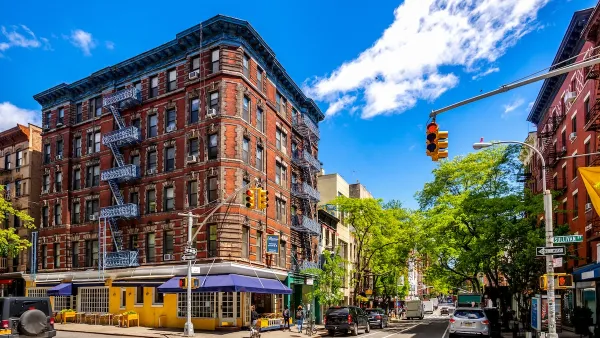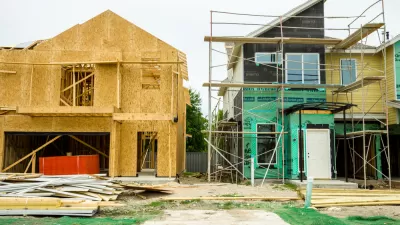A recent ruling that favored local homeowners over a developer in Houston had some wondering whether Houston's days as a "development free-for-all" were over. Fear not, says Stephen J. Smith.
Stephen J. Smith provides background about some of the legal and regulatory contexts in Houston, especially following a potentially precedent-setting decision in a recent lawsuit against the developers of a high-rise project known as the Ashby.
In the past, explains Smith, land use regulations in Houston induced sprawl, such as the sewer moratorium in 1974, which severely restricted development for a decade, as well as regulations that limited the types of townhouse construction popular with developers.
But when such restrictions are overturned, such as the anti-townhouse rules were in 1998, Houston's market and regulatory environments usually encourage density. "Since the minimum townhouse lot size has been dropped to 1,400 square feet, the attached houses have been popping up all over Houston’s inner-Loop. The townhouses are not always popular, with the treatment of their garages — each requires two parking spaces according to the city’s non-zoning code — coming in for most of the criticism. But despite their design defects, the attached homes are adding real density — filling in the holes in neighborhoods like Midtown, Montrose and beyond, and packing bodies within walking distance of shops, restaurants, light rail and frequent bus routes."
What does this mean for the recent decision in the Ashby case? "The Ashby high-rise case was a setback for the development industry, but not a fatal blow." In fact, says Smith, "Houston has become considerably more friendly to dense infill development, and will likely continue the trend."
FULL STORY: Sprawltastic Houston Is Densifying and the Courts Can’t Stop It

Maui's Vacation Rental Debate Turns Ugly
Verbal attacks, misinformation campaigns and fistfights plague a high-stakes debate to convert thousands of vacation rentals into long-term housing.

Planetizen Federal Action Tracker
A weekly monitor of how Trump’s orders and actions are impacting planners and planning in America.

In Urban Planning, AI Prompting Could be the New Design Thinking
Creativity has long been key to great urban design. What if we see AI as our new creative partner?

King County Supportive Housing Program Offers Hope for Unhoused Residents
The county is taking a ‘Housing First’ approach that prioritizes getting people into housing, then offering wraparound supportive services.

Researchers Use AI to Get Clearer Picture of US Housing
Analysts are using artificial intelligence to supercharge their research by allowing them to comb through data faster. Though these AI tools can be error prone, they save time and housing researchers are optimistic about the future.

Making Shared Micromobility More Inclusive
Cities and shared mobility system operators can do more to include people with disabilities in planning and operations, per a new report.
Urban Design for Planners 1: Software Tools
This six-course series explores essential urban design concepts using open source software and equips planners with the tools they need to participate fully in the urban design process.
Planning for Universal Design
Learn the tools for implementing Universal Design in planning regulations.
planning NEXT
Appalachian Highlands Housing Partners
Mpact (founded as Rail~Volution)
City of Camden Redevelopment Agency
City of Astoria
City of Portland
City of Laramie





























